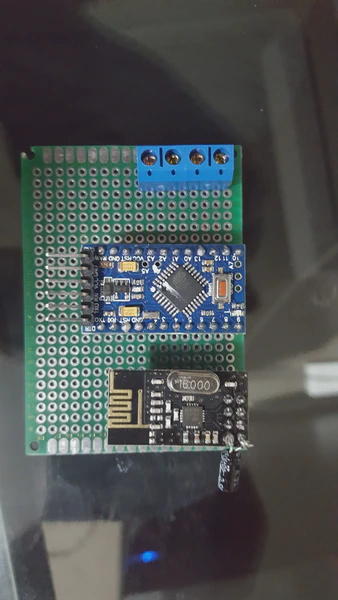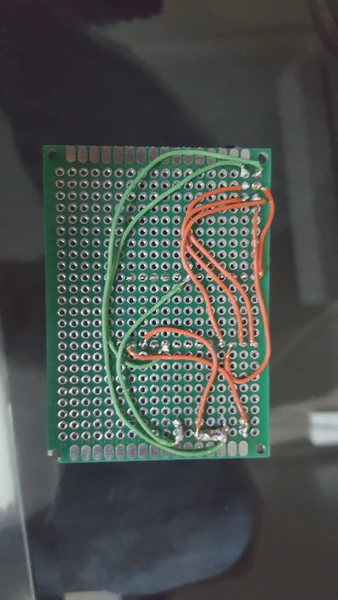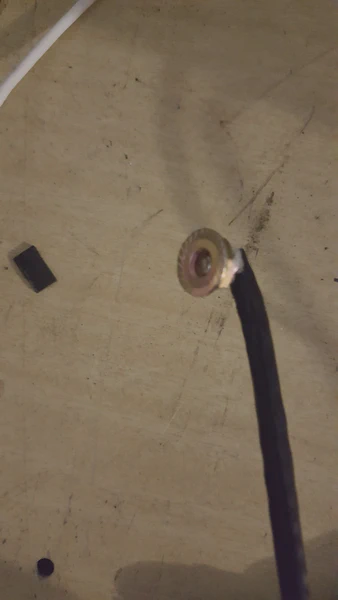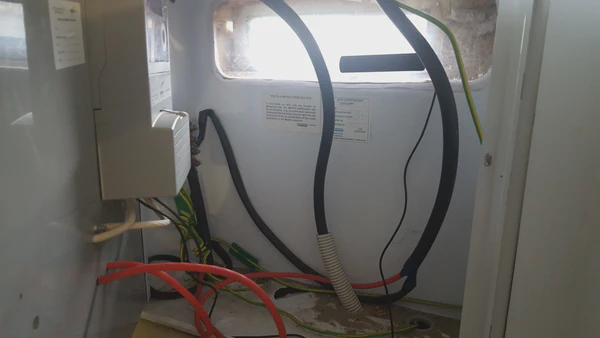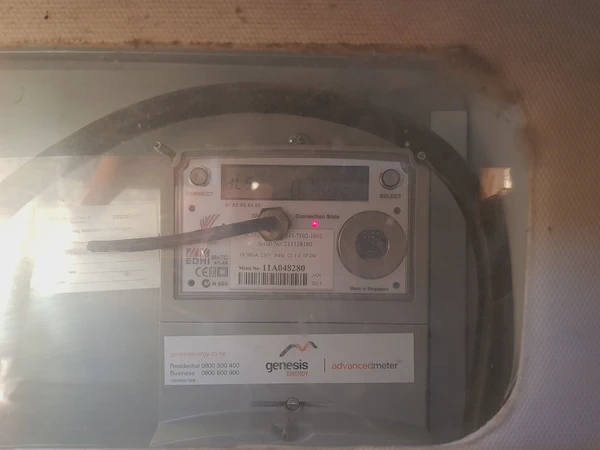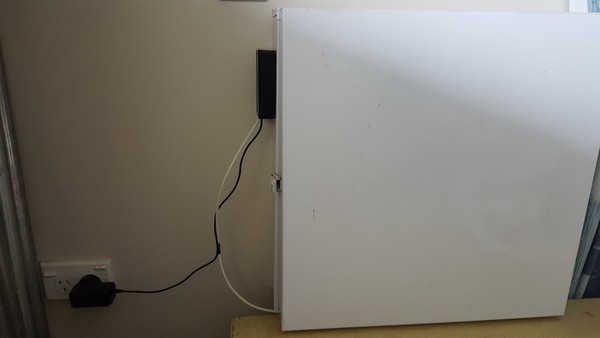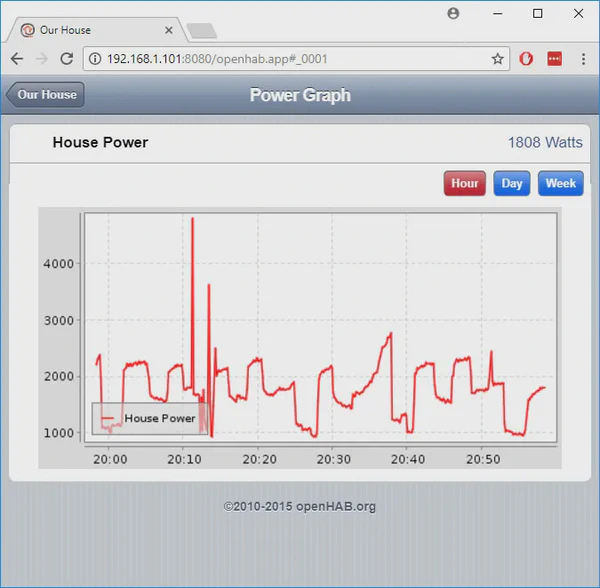Power Usage Sensor
Measuring House Power Consumption
Highlights
- Standard MySensors Pulse Meter
- 3DU5 phototransistor detects meter pulses
WARNING: This build works around high voltage.
My Company and I accept no liability whatsoever for your own well being or that of your electrical gear.
MySensors Energy Meter Pulse Sensor
/**
* The MySensors Arduino library handles the wireless radio link and protocol
* between your home built sensors/actuators and HA controller of choice.
* The sensors forms a self healing radio network with optional repeaters. Each
* repeater and gateway builds a routing tables in EEPROM which keeps track of the
* network topology allowing messages to be routed to nodes.
*
* Created by Henrik Ekblad <henrik.ekblad@mysensors.org>
* Copyright (C) 2013-2015 Sensnology AB
* Full contributor list: https://github.com/mysensors/Arduino/graphs/contributors
*
* Documentation: http://www.mysensors.org
* Support Forum: http://forum.mysensors.org
*
* This program is free software; you can redistribute it and/or
* modify it under the terms of the GNU General Public License
* version 2 as published by the Free Software Foundation.
*
*******************************
*
* REVISION HISTORY
* Version 1.0 - Henrik EKblad
*
* DESCRIPTION
* This sketch provides an example how to implement a distance sensor using HC-SR04
* Use this sensor to measure KWH and Watt of your house meeter
* You need to set the correct pulsefactor of your meeter (blinks per KWH).
* The sensor starts by fetching current KWH value from gateway.
* Reports both KWH and Watt back to gateway.
*
* Unfortunately millis() won't increment when the Arduino is in
* sleepmode. So we cannot make this sensor sleep if we also want
* to calculate/report watt-number.
* http://www.mysensors.org/build/pulse_power
*/
// Enable debug prints
#define MY_DEBUG
// Enable and select radio type attached
#define MY_RADIO_NRF24
//#define MY_RADIO_RFM69
#define MY_NODE_ID 51
#include <SPI.h>
#include <MySensor.h>
#define DIGITAL_INPUT_SENSOR 3 // The digital input you attached your light sensor. (Only 2 and 3 generates interrupt!)
#define PULSE_FACTOR 1000 // Nummber of blinks per KWH of your meeter
#define SLEEP_MODE false // Watt-value can only be reported when sleep mode is false.
#define MAX_WATT 10000 // Max watt value to report. This filetrs outliers.
#define INTERRUPT DIGITAL_INPUT_SENSOR-2 // Usually the interrupt = pin -2 (on uno/nano anyway)
#define CHILD_ID 1 // Id of the sensor child
unsigned long SEND_FREQUENCY = 10000; // Minimum time between send (in milliseconds). We don't wnat to spam the gateway.
double ppwh = ((double)PULSE_FACTOR)/1000; // Pulses per watt hour
boolean pcReceived = true;
volatile unsigned long pulseCount = 0;
volatile unsigned long lastBlink = 0;
volatile unsigned long watt = 0;
unsigned long oldPulseCount = 0;
unsigned long oldWatt = 0;
double oldKwh;
unsigned long lastSend;
MyMessage wattMsg(CHILD_ID,V_WATT);
MyMessage kwhMsg(CHILD_ID,V_KWH);
MyMessage pcMsg(CHILD_ID,V_VAR1);
void setup()
{
// Fetch last known pulse count value from gw
request(CHILD_ID, V_VAR1);
// Use the internal pullup to be able to hook up this sketch directly to an energy meter with S0 output
// If no pullup is used, the reported usage will be too high because of the floating pin
pinMode(DIGITAL_INPUT_SENSOR,INPUT_PULLUP);
attachInterrupt(INTERRUPT, onPulse, RISING);
lastSend=millis();
}
void presentation() {
// Send the sketch version information to the gateway and Controller
sendSketchInfo("Energy Meter", "1.0");
// Register this device as power sensor
present(CHILD_ID, S_POWER);
}
void loop()
{
unsigned long now = millis();
// Only send values at a maximum frequency or woken up from sleep
bool sendTime = now - lastSend > SEND_FREQUENCY;
if (pcReceived && (SLEEP_MODE || sendTime)) {
// New watt value has been calculated
if (!SLEEP_MODE && watt != oldWatt) {
// Check that we dont get unresonable large watt value.
// could hapen when long wraps or false interrupt triggered
if (watt<((unsigned long)MAX_WATT)) {
send(wattMsg.set(watt)); // Send watt value to gw
}
Serial.print("Watt:");
Serial.println(watt);
oldWatt = watt;
}
// Pulse cout has changed
if (pulseCount != oldPulseCount) {
send(pcMsg.set(pulseCount)); // Send pulse count value to gw
double kwh = ((double)pulseCount/((double)PULSE_FACTOR));
oldPulseCount = pulseCount;
if (kwh != oldKwh) {
send(kwhMsg.set(kwh, 4)); // Send kwh value to gw
oldKwh = kwh;
}
}
lastSend = now;
} else if (sendTime && !pcReceived) {
// No count received. Try requesting it again
request(CHILD_ID, V_VAR1);
lastSend=now;
}
if (SLEEP_MODE) {
sleep(SEND_FREQUENCY);
}
}
void receive(const MyMessage &message) {
if (message.type==V_VAR1) {
pulseCount = oldPulseCount = message.getLong();
Serial.print("Received last pulse count from gw:");
Serial.println(pulseCount);
pcReceived = true;
}
}
void onPulse()
{
if (!SLEEP_MODE) {
Serial.print(" pulse\n");
unsigned long newBlink = micros();
unsigned long interval = newBlink-lastBlink;
if (interval<10000L) { // Sometimes we get interrupt on RISING
return;
}
watt = (3600000000.0 /interval) / ppwh;
lastBlink = newBlink;
}
pulseCount++;
}
